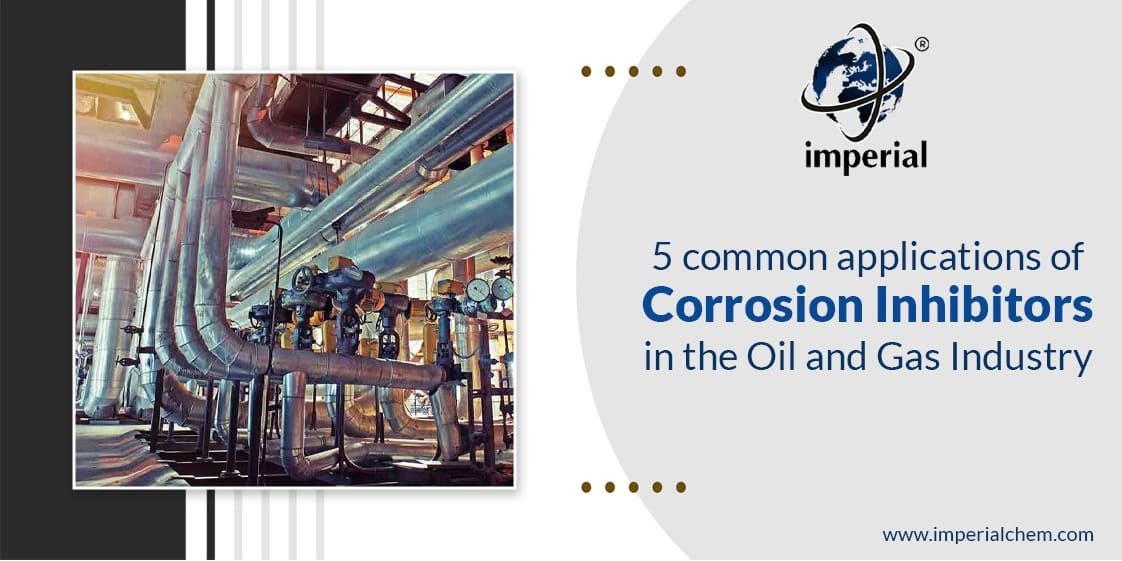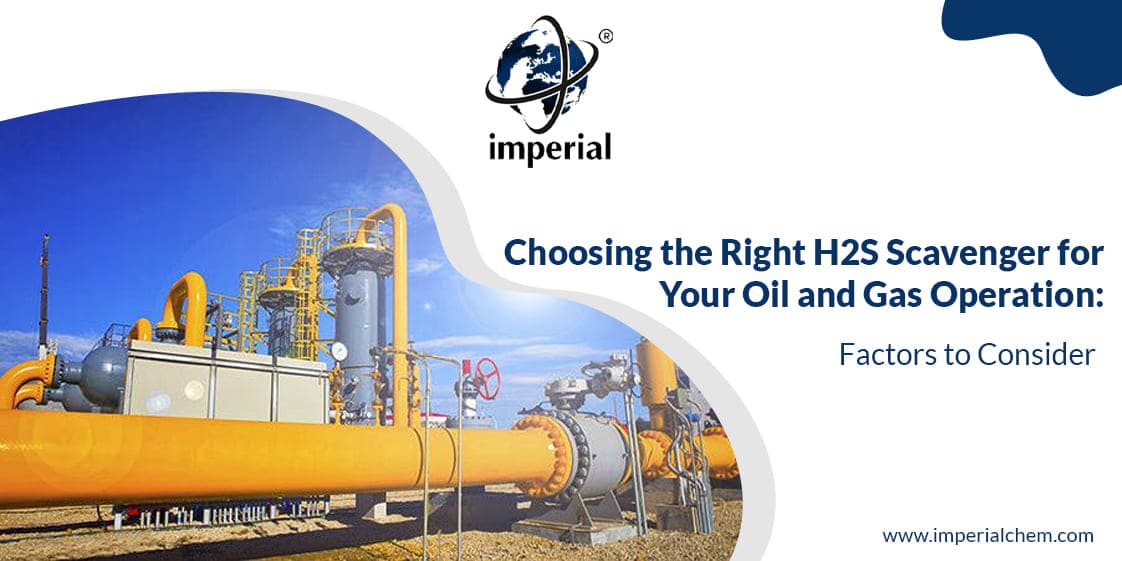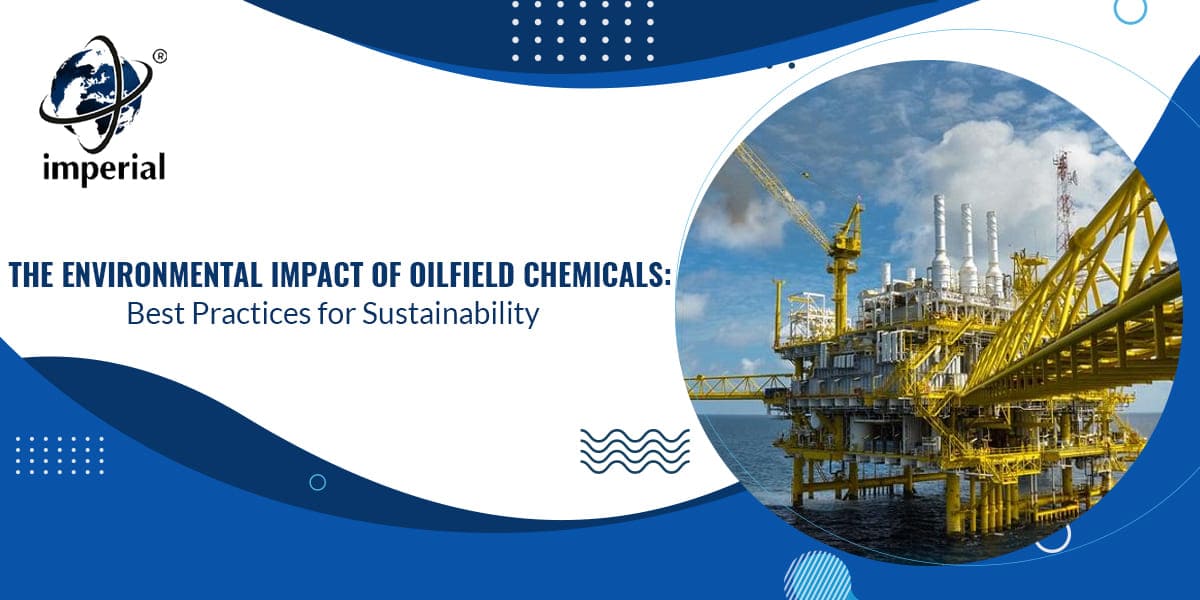- All Products
- Corrosion Inhibitor
- Oxygen Scavenger
- Drag Reducing Agent / Flow Improver
- H2S Scavenger
- Triazine
- Demulsifier
- Emulsion Breaker
- Surfactant
- Wax / Parrafin Disperssant
- Asphaltene Inhibitor

Blog Details

21
FEB
5 Common applications of corrosion inhibitors in the oil and gas industry
Corrosion is a significant problem in many industries, including oil and gas, chemical processing, and manufacturing. Corrosion can cause significant damage to equipment and infrastructure and even pose safety hazards. Corrosion inhibitor chemicals, as well as water treatment chemicals, are compounds that are used to prevent or slow down the corrosion process.
This blog will explore some of the most common corrosion inhibitor chemicals manufactured by the top-ranked corrosion inhibitor manufacturers in India.
1. Organic Corrosion Inhibitors:
Organic corrosion inhibitors are compounds that contain carbon and are derived from natural or synthetic sources. They work by adsorbing on the metal surface and forming a protective layer that prevents corrosive agents from attacking the metal. Organic corrosion inhibitors effectively prevent general and localized corrosion, such as pitting and crevice corrosion. They are commonly used in the oil and gas industry to protect equipment, pipelines, and storage tanks.
2. Inorganic Corrosion Inhibitors:
Inorganic corrosion inhibitors are compounds that do not contain carbon and are derived from natural or synthetic sources. They work by forming a passive oxide layer on the metal surface that protects the metal from corrosive agents. Inorganic corrosion inhibitors are effective in preventing general corrosion and stress corrosion cracking. They are commonly used in the chemical processing industry to protect equipment, such as reactors and heat exchangers.
3. Mixed Inhibitors:
Mixed inhibitors are compounds that contain both organic and inorganic compounds. They combine the protective properties of organic and inorganic inhibitors to provide enhanced protection against corrosion. Mixed inhibitors effectively prevent general, localised, and stress corrosion cracking. Oil and gas commonly use them to protect equipment, such as pipelines, storage tanks, and drilling rigs.
4. Volatile Corrosion Inhibitors (VCI):
Volatile corrosion inhibitors (VCI) are compounds that vaporize and form a protective layer on the metal surface. They release molecules that adsorb on the metal surface, forming a barrier against corrosive agents. VCI effectively prevents general and localized corrosion, such as pitting and crevice. They are commonly used in packaging to protect metal parts during transportation and storage.
5. Oxygen Scavengers:
Oxygen scavengers are compounds that remove oxygen from the environment to prevent corrosion. Oxygen is one of the most common corrosive agents and is present in air and water. Oxygen scavengers react with oxygen to form a stable compound that does not corrode metal. Oxygen scavengers are commonly used in the boiler industry to prevent corrosion in steam boilers.
Common applications of Corrosion Inhibitors in the Oil and Gas Industry:
1. Oil and Gas Pipelines:
Pipelines are a critical part of the oil and gas industry and are used to transport crude oil, natural gas, and other petroleum products over long distances. However, these pipelines are exposed to corrosive environments, leading to pipeline failures and leaks. Corrosion inhibitors are used in pipelines to protect them from corrosion and ensure their safe and efficient operation
Corrosion inhibitors work by forming a protective film on the metal surface, which prevents corrosive agents from attacking the metal. Corrosion inhibitors can also reduce the rate of metal dissolution and decrease the likelihood of stress corrosion cracking.
Imperial Oilfield Chemicals ranks among the most distinguished corrosion inhibitor manufacturers in India and is known worldwide for its quality chemical solutions specially designed for Oil and Gas Industry.
2. Oil and Gas Storage Tanks:
Storage tanks are used to store crude oil, natural gas, and other petroleum products. These tanks are exposed to various corrosive agents, such as water, oxygen, and bacteria. Corrosion inhibitors are used in storage tanks to protect them from corrosion and ensure the quality of the stored products.
Corrosion inhibitors work by forming a protective film on the metal surface, which prevents corrosive agents from attacking the metal. Corrosion inhibitors can also reduce the rate of metal dissolution and decrease the likelihood of microbiologically influenced corrosion.
3. Oil and Gas Production Equipment:
Oil and gas production equipment, such as wellheads, production tubing, and valves, are exposed to corrosive environments that can cause significant damage and lead to equipment failure. Corrosion inhibitors are used in production equipment to protect them from corrosion and ensure their safe and efficient operation.
Corrosion inhibitors work by forming a protective film on the metal surface, which prevents corrosive agents from attacking the metal. Corrosion inhibitors can also reduce the rate of metal dissolution and decrease the likelihood of stress corrosion cracking.
4. Offshore Structures:
Offshore structures, such as oil rigs, platforms, and pipelines, are exposed to harsh environments that can cause significant damage and lead to equipment failure. Corrosion inhibitors are used in offshore structures to protect them from corrosion and ensure their safe and efficient operation.
Corrosion inhibitors work by forming a protective film on the metal surface, which prevents corrosive agents from attacking the metal. Corrosion inhibitors can also reduce the rate of metal dissolution and decrease the likelihood of stress corrosion cracking.
5. Drilling Fluids:
Drilling fluids are used in the oil and gas industry to facilitate the drilling process. These fluids can contain corrosive agents, such as acids and salts, which can cause corrosion in the drilling equipment. Corrosion inhibitors are used in drilling fluids to protect the drilling equipment from corrosion and ensure its safe and efficient operation.
Corrosion inhibitors work by forming a protective film on the metal surface, which prevents corrosive agents from attacking the metal. Corrosion inhibitors can also reduce the rate of metal dissolution and decrease the likelihood of stress corrosion cracking.
Final Thoughts:
Corrosion inhibitors play a critical role in the oil and gas industry, where metal equipment and structures are exposed to corrosive environments that can cause significant damage and lead to equipment failure. Oil and gas pipelines, storage tanks, production equipment, offshore structures, and drilling fluids are some of the common applications of corrosion inhibitors in the oil and gas industry. The selection of the appropriate corrosion inhibitor depends on the type of metal, environment, and corrosive agents present. A qualified corrosion specialist can help select the appropriate corrosion inhibitor for a specific application. If you are looking for the best quality water treatment chemicals as well as corrosion inhibitor chemicals, Imperial Oilfield Chemicals is the name you can rely on.











